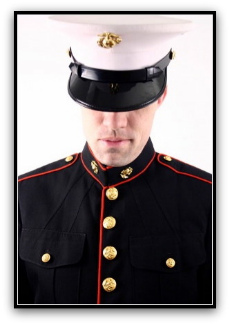
After a year of record suicides, increasing cases of post-traumatic stress disorder (PTSD), and a renewed commitment to send more Marines to Afghanistan in 2010, the U.S. Marine Corps has a new approach to handling mental health and illness.
In November 2009, Gen. James Amos, assistant commandant of the Marine Corps, stated that every infantry company will embed mental health professionals in units deploying overseas to Afghanistan and Iraq. The Marines Corps wants to have these professionals ready to start providing care by March 2010.
These professionals will train fellow enlisted warriors to spot problems among peers, treat service members identified with possible problems, and provide effective mental health prevention and intervention programs.
This directive from the Marines came after statistics, released in November 2009, reported 42 suicides among a total Marine troop level of 208,000. This number is higher than the 33 Marine suicides in 2007, and 25 reported suicides in 2006.
The increasing number of suicides worries military leaders as they recognize that, after eight years of war, record numbers of troops are experiencing depression and anxiety, as well as the more severe conditions of PTSD and traumatic brain injury (TBI). Leaders recognize that left untreated, emotional and behavioral issues impact personal readiness and performance, and overall readiness and success of the entire unit.
The Marines Corps calls the new mental health initiative OSCAR, or Operational Stress Control and Readiness. The program includes a mentoring program designed to help troops properly and quickly identify peers exhibiting signs of stress. Early identification is the key to preventing problems from escalating, according to those working in the mental health field, and a position that the Marines Corps supports.
Professionals on these teams also deliver short-term interventions for stress-related issues, such as deep breathing and relaxation techniques, or solution-focused therapies. For those requiring more intensive therapies, the mental health professionals consult with leaders on removing these individuals from combat zones, and connecting them with professionals who can provide more long-term therapy.
In conjunction with the implementation of OSCAR, the Marines Corps is also working to dispel the stigma often associated with seeking treatment for mental health issues. Unless a danger exists to the individual or others, leaders guarantee that individuals seeking care won’t lose their security clearance, or get demoted.
Another integral aspect to the increased focus on mental health issues are the Marine Corps Community Services (MCCS) located on each base or installation. Called the Marine and Family Services (MFS) Center, this unit includes mental health support for Marines’ spouses and children. Marital, family, and financial counselors deliver integral services for the increased stress placed on spouse and children before, during, and after a family member’s deployment.
For service members and their families, the Center also offers workshops on conflict resolution, dealing with difficult people, stress and anger management, and classes on depression and anxiety. Some bases also have toddler and play groups for children, and support groups for the care of special needs children.
To meet the demand for more mental health professionals, the Marines Corps needs qualified counselors, psychologists, and social workers. If you are considering a psychology degree, and want to work with military service members and their families, and are interested about job prospects, the opportunities in the Marines are growing. Those with degrees in psychology are eligible for advanced training, and qualify for possible military scholarships and internships.
To receive more information on the many ways to apply a psychology degree, request information from schools offering degrees in psychology.